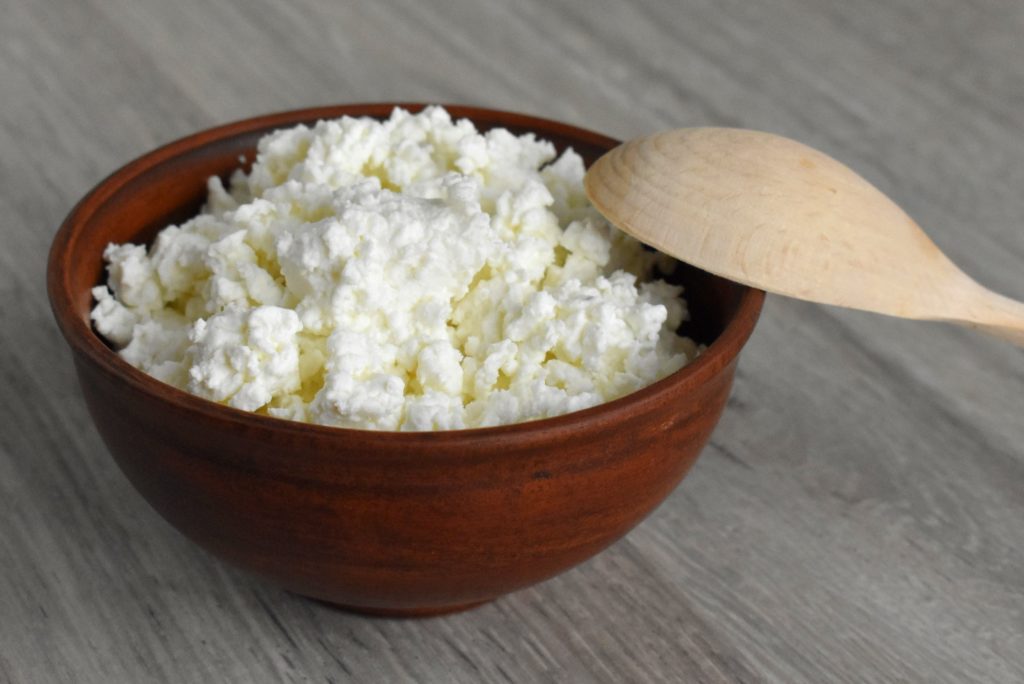For those of us that go to the supermarket and actually read ingredient labels, sometimes we find it confusing to determine whether the food in the package is actually safe. So here are 4 ingredients to definitely stay away from:
1. Carrageenan
Derived from red seaweed, carrageenan is used in many different food products as a thickener, emulsifier and a preservative.

Common sources of carrageenan include almond milk, cottage cheese, ice cream, coffee creamers and dairy-free products like vegan cheese. For decades, there have been concerns about the safety of this common food additive and its potential effects on health.
One animal study showed that exposure to carrageenan increased levels of fasting blood sugar and glucose intolerance, especially when combined with a high-fat diet, and test-tube and animal studies have found that carrageenan triggered inflammation, as well (US National Library of Medicine-National Institutes of Health).
Carrageenan is also believed to negatively impact digestive health and may be associated with the formation of intestinal ulcers and growths. One small study found that when people in remission from ulcerative colitis took a supplement containing carrageenan, they experienced an earlier relapse than those who took a placebo. (US National Library of Medicine-National Institutes of Health).
Review: Test-tube and animal studies have found that carrageenan may cause high blood sugar and could cause intestinal ulcers and growths. One study also found that carrageenan contributed to an earlier relapse of ulcerative colitis.
2. Sodium Benzoate
Sodium benzoate is a preservative often added to carbonated drinks and acidic foods like salad dressings, pickles, fruit juices and condiments. It has been generally recognized as safe by the FDA, but several studies have uncovered potential side effects that should be considered.
For example, one study found that combining sodium benzoate with artificial food coloring increased hyperactivity in 3-year-old children. (US National Library of Medicine-National Institutes of Health).
Another study showed that a higher intake of beverages containing sodium benzoate was associated with more symptoms of ADHD in 475 college students. Also, when combined with vitamin C, sodium benzoate can also be converted into a benzene, a compound that may be associated with cancer development (US National Library of Medicine-National Institutes of Health).
Carbonated beverages contain the highest concentration of benzene, and diet or sugar-free beverages are even more prone to benzene formation. One study analyzing the concentration of benzene in a variety of foods found cola and coleslaw samples with over 100 ppb of benzene, which is over 20 times the maximum contaminant level set by the EPA for drinking water. (US National Library of Medicine-National Institutes of Health).
To minimize your intake of sodium benzoate, check the labels of your food carefully.
Avoid foods that contain ingredients like benzoic acid, benzene or benzoate, especially if combined with a source of vitamin C such as citric acid or ascorbic acid.
Review: Sodium benzoate may be associated with increased hyperactivity. If combined with vitamin C, it may also form benzene, a compound that may be associated with cancer development.
3. Artificial Flavoring
Artificial flavors are chemicals designed by food manufacturers to mimic the taste of other ingredients. They can be used to imitate a variety of different flavors, from popcorn and caramel to fruit and beyond.

Animal studies have found that these synthetic flavors could have some concerning effects on health. One study found that the red blood cell production in rats was significantly reduced after they were fed artificial flavorings for seven days.
Not only that, certain flavors like chocolate, biscuit and strawberry were also found to have a toxic effect on their bone marrow cells. (US National Library of Medicine-National Institutes of Health).
Similarly, another animal study showed that grape, plum and orange synthetic flavorings inhibited cell division and were toxic to bone marrow cells in mice (US National Library of Medicine-National Institutes of Health).
However, keep in mind that these studies used a much more concentrated dose than you might find in food, and further research is needed to determine how artificial flavoring in the amounts found in foods may affect humans.
In the meantime, it would be a good idea to limit your intake of artificial flavoring, check the ingredients label of your foods.
Look for “chocolate” or “cocoa” on the ingredients label rather than “chocolate flavoring” or “artificial flavoring.”
Review: Some animal studies have found that artificial flavoring may be toxic to bone marrow cells. More research is needed to evaluate the effects in humans.
4. Yeast Extract
Yeast extract, also called autolyzed yeast extract or hydrolyzed yeast extract, is added to certain savory foods like cheese, soy sauce and salty snacks to boost the flavor.
The extract is made by combining sugar and yeast in a warm environment, then spinning it in a centrifuge and discarding the cell walls of the yeast.
Yeast extract contains glutamate, which is a type of naturally occurring amino acid found in many foods. Much like monosodium glutamate (MSG), eating foods with glutamate may cause mild symptoms like headaches, numbness and swelling in people who are sensitive to its effects. (US National Library of Medicine-National Institutes of Health).
Additionally, yeast extract is relatively high in sodium, with about 400 milligrams in each teaspoon (8 grams). Reducing sodium intake has been shown to help decrease blood pressure, especially in people who have high blood pressure (US National Library of Medicine-National Institutes of Health). Unfortunately, as of 2017, yeast extract is still recognized as safe by the Food and Drug Administration (US National Library of Medicine-National Institutes of Health).
Consider limiting or better yet, eliminating your intake of processed foods with yeast extract and adding more fresh, whole foods to your diet before you start experiencing negative effects.
Review: Yeast extract is high in sodium and contains glutamate, which may trigger symptoms in some people.
The Bottom Line
If you really want to stay healthy, you’ll start reading ingredient labels on all your food and try to limit the amount of packaged food you purchase. It is up to you to determine what’s really being added to your foods. The only one that can make sure to monitor the food you buy to keep yourself and your family healthy and away form those ingredients that can promote major diseases is you.
While certain food additives have been linked to some pretty scary side effects, there are plenty of others that can be safely consumed as part of a healthy diet.
© Copyright – Hector Sectzer

















